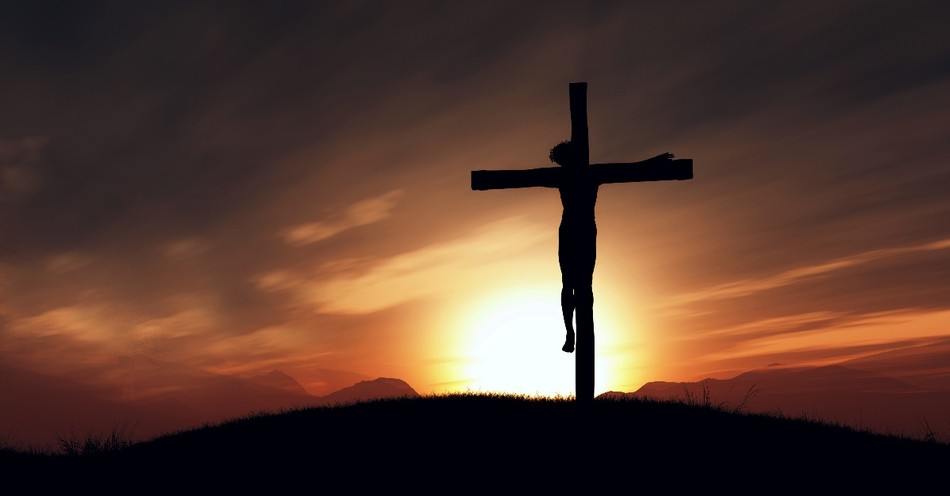In Matthew 11:29, Jesus tells us to take his yoke on ourselves: "Take my yoke upon you and learn from me, for I am gentle and humble in heart, and you will find rest for your souls."
What does he mean by this? What is a yoke? What does it mean to be yoked to Christ? And why should we do this? This article will attempt to answer those questions.
What Is a Yoke?
A yoke is a wooden beam that allows a pair of oxen, or other animals, to pull together on a load, although sometimes it is used with a single animal. The yoke enables the herder to effectively harness the strength of the animals to accomplish the needed task.
A yoke binds a draft animal to the object they are pulling. In the same way, we can refer to something that binds us to a heavy load as a yoke.
The heavy burden we might be yoked to could be religion, work, poverty, health, or relationships. But whatever it might be, it is something that has enslaved us and controlled our lives.
The Yoke of the Old Testament Law and of Life
Most of the time, when Scripture refers to a yoke, it is is about the yoke an animal wears. But there are two other yokes mentioned in the Scripture. The first of these is in Acts 15:10.
In this passage, Peter refers to a yoke that the Jews of his day, as well as their ancestors, had not been able to bear. This was in response to an effort by some Jewish believers to impose the requirement to be circumcised and obey the law of Moses on the new Gentile believers. This yoke they had not been able to bear was the law. Or, more precisely, obedience to the law as a means of being justified.
Justification via the law required total obedience to it (Galatians 5:3-4), which they never succeeded in doing. It was, in fact, a justification that was impossible to obtain (Acts 13:39, Romans 3:20, Galatians 2:21).
While the Jews were under the yoke of the law, there were, and are, other yokes that people struggled under. Many of the world’s religions impose requirements for becoming acceptable to their god(s) or escaping from the endless cycle of life.
Striving for worldly success is a burden for many people. Others are burdened with relationship issues, economic struggles, or health issues. Regardless of what the burden might be, many people are weighed down and find it hard to be able to find real peace and rest.
What is Jesus's Yoke?
The second yoke mentioned in the Scripture is Jesus’ yoke. In Matthew 11:29-30, Jesus invites us to take up his yoke. A yoke that is easy and whose burden is light. This is quite a contrast to the yoke of the law, which was unbearable (Acts 15:10).
But what is this yoke that Jesus invites us to take up? If the unbearable yoke is the law, then Jesus’ yoke would relate to God’s grace.
Paul contrasts the law with grace throughout his letter to the Galatian churches. In Galatians 5:1, he told the Galatians to stand firm in the freedom that Christ brought to them. And not to be burdened again with the yoke of slavery to the law.
The yoke of slavery represented the law and the requirement that you follow it fully if you are hoping to be justified by it. In contrast to the yoke of slavery is freedom in Christ. A freedom that is experienced via God’s grace. Freedom from the law and its requirements.
Jesus’ invitation to take his yoke was an invitation to experience the grace of God. It was an invitation to participate in the rest Jesus would bring us.
How To "Take My Yoke Upon You"?
Jesus invites those who are burdened by the yoke of the law, other religions, or the challenges of life to come to him, and he would give them rest (Matthew 11:28). And then he tells us that when we take up his yoke, we will find rest for our souls (Matthew 11:29).
Taking up Jesus’ yoke and finding rest in him go together. When we take up the yoke of Jesus, experiencing God’s grace, we enter into God’s rest. But what is God’s rest?
We see this mentioned first in Genesis 2:2-3. On the seventh day, God rested from all the work he had been doing. This does not mean he did nothing on the seventh day, a day without an end. Instead, the work of creation was done, and he took up his rule over his creation.
Hebrews 3-4 references God’s rest. But here, that rest is the promised land that Moses had led Israel to.
The author of Hebrews tells us that that generation failed to enter God’s rest because of disobedience. But there is an opportunity for us to enter his rest, a Sabbath rest for the people of God (Hebrews 4:9). A rest that we enter through faith (Hebrews 4:2-3).
Why Be Yoked to Jesus?
So why should we consider exchanging our old yoke with the one Jesus gives? Matthew 11:28-30 offers us three reasons.
The first is because he freely offers it to us. His yoke is not something I have to search for. I do not have to beg for it. Nor did I have to work for it. The offer of God’s grace, represented by the yoke of Christ, is freely offered to all who would accept it by faith.
Secondly, in contrast to the burden imposed by other yokes we might bear, his is light. The primary yoke that Jesus contrasts his with is the law. And, more preciously, the law as interpreted and expanded by the first-century teachers of the law.
The yoke of the law and the tradition built around it was a heavy burden. It was so heavy that most people despaired of being able to satisfy it.
Jesus’ invitation to the weary and burdened was primarily directed toward those who felt overwhelmed by what their religious leaders demanded of them.
Today, many still labor under the burden of attempting to be “good enough” to satisfy God. In contrast, Jesus’ yoke simply requires that we turn to him in faith and follow where he leads. And that will not be a burden because we are yoked to him, and he does all the work.
And, finally, because when we take up his yoke, we can learn of him. Learning of Jesus is more than just an academic activity, although some intellectual learning is involved. It is primarily one of relationship.
When we take up the yoke Jesus offers, we will walk with him, getting to know him. And that is the most important reason for taking Jesus’ yoke, to personally know Jesus, the one who gave himself for me so that I might have new life. And, in the end, that is what taking Jesus’ yoke is about, experiencing new life in Christ.
For further reading:
What Does it Mean ‘The Anointing Breaks the Yoke’?
What Is Yoke in the Bible? Meaning & Importance of Jesus' Teaching
How Has the Freedom in Christ Set Us Free?
Photo Credit: ©iStock/Getty Images Plus/kirstypargeter




.jpg)